
Ken McQueen, National Rock Garden Steering Committee
Published in the National Rock Garden Newsletter No. 26, December 2023
In an earlier edition of the NRG Newsletter (No. 23 May 2022), I described an interesting site in the Monaro region of southern NSW recently uncovered by widening of the Bobeyan Road south of Shannons Flat (https://www.nationalrockgarden.com.au/featured-article/road-cuttings-windows-to- ancient-landscapes/). The site was particularly interesting as it contained several silcrete bodies, exposed in three dimensions and in their original in situ position of formation. Thanks to the Snowy Monaro Regional Council, who provided permission and assistance, and the logistical planning facilitated by Peter Fogarty and Greg Bowman of NSW Soil Knowledge Network, the NRG has been able to obtain two large samples of the silcrete from the road cutting. This has also saved the blocks from the crushers or a fate as road-fill. A remaining section of the largest block is also still preserved in the road cutting for future scientific research and viewing by educational groups and the general public.
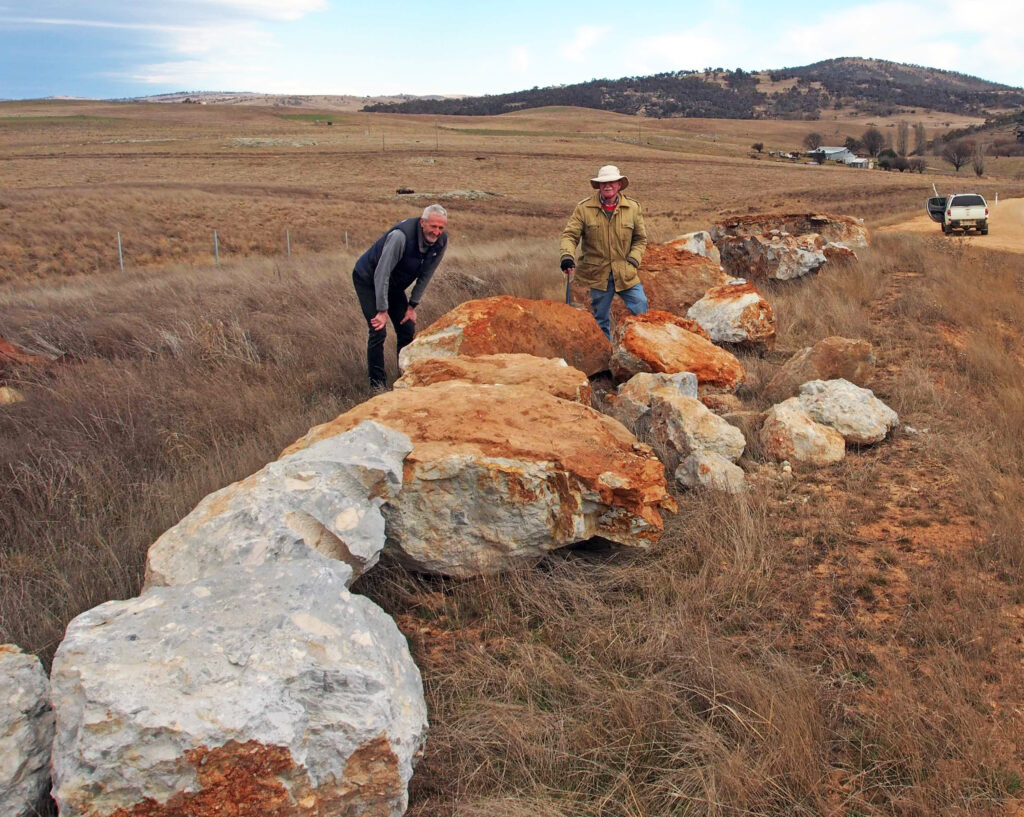
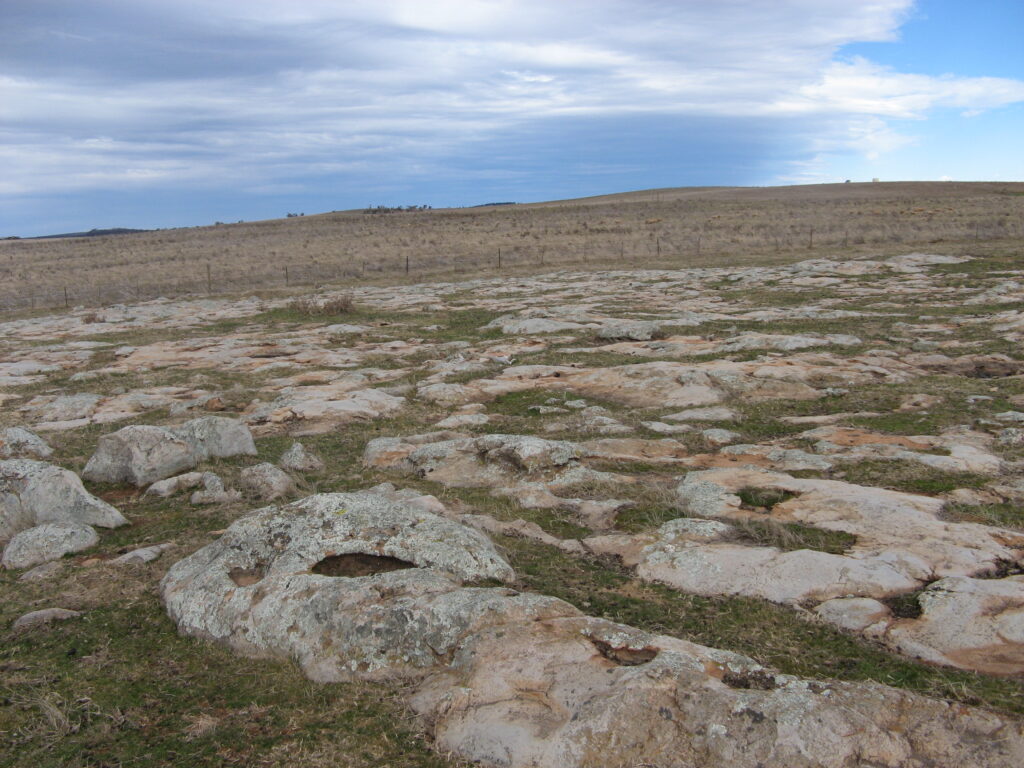
Silcrete is an important rock across Australia. It was a key resource for aboriginal people for tool making and its formation has been important in landscape evolution, particularly for forming indurated (hard) and chemically resistant materials that commonly result in topographic inversion in our ancient landscapes. Examples of such inversion related to silcretes and ferricretes include the ‘jump up’ topography of north-central Queensland and the ‘break away’ country in Western Australia.
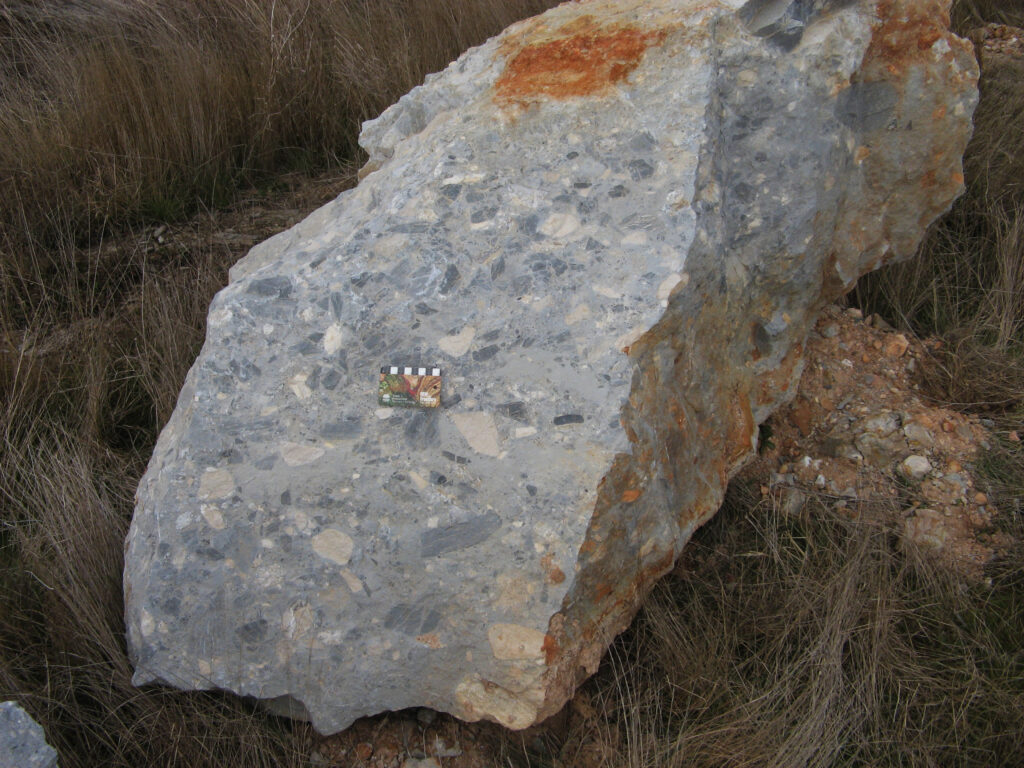
Silcretes are of great scientific interest and their exact mode of origin is controversial and subject to ongoing research. Silcretes preserve remnants and ‘ghosts’ of the materials they have silicified including fossils from their main periods of formation during the Cenozoic era.
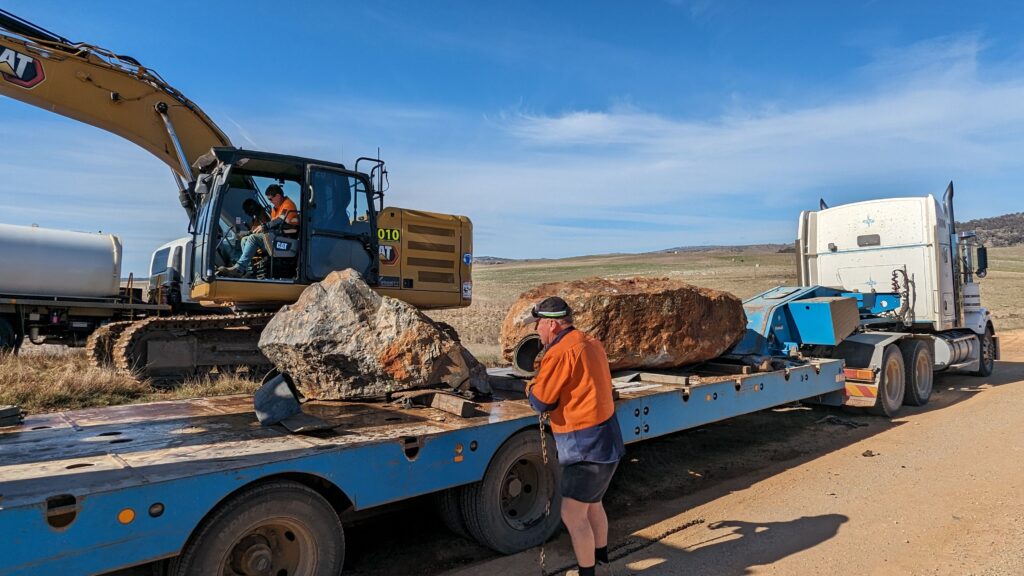
The National Rock Garden would like to acknowledge and thank all the people involved in procuring these important and iconic rocks, including Peter Fogarty and Greg Bowman of NSW Soil Knowledge Network, the Snowy Monaro Regional Council, Warwick Scarlett of Monaro Freight, and Mat and Simon of RAR Cranes.
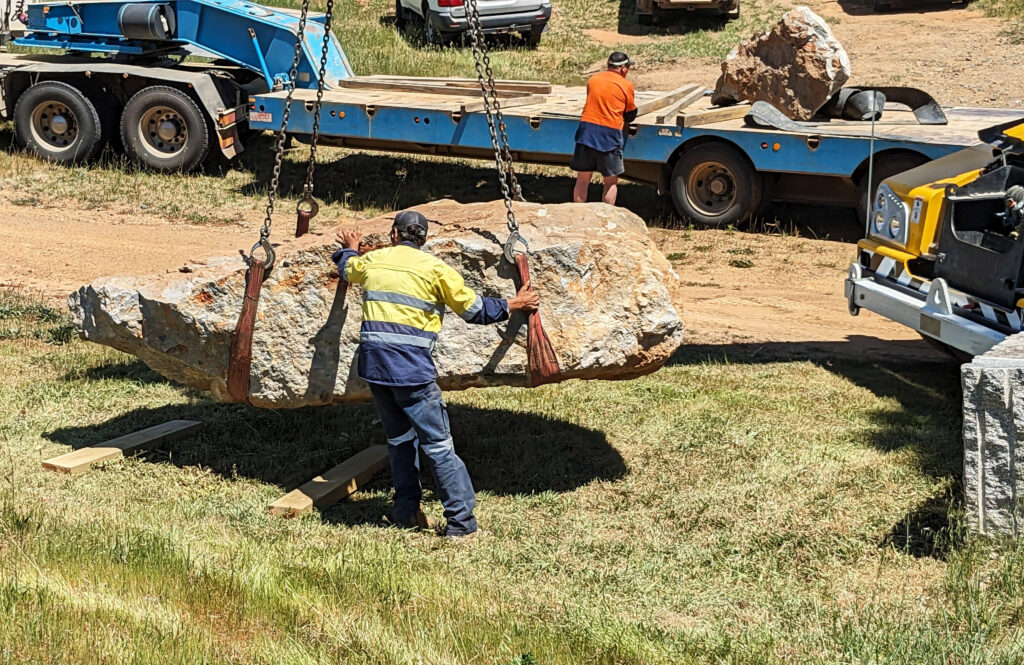
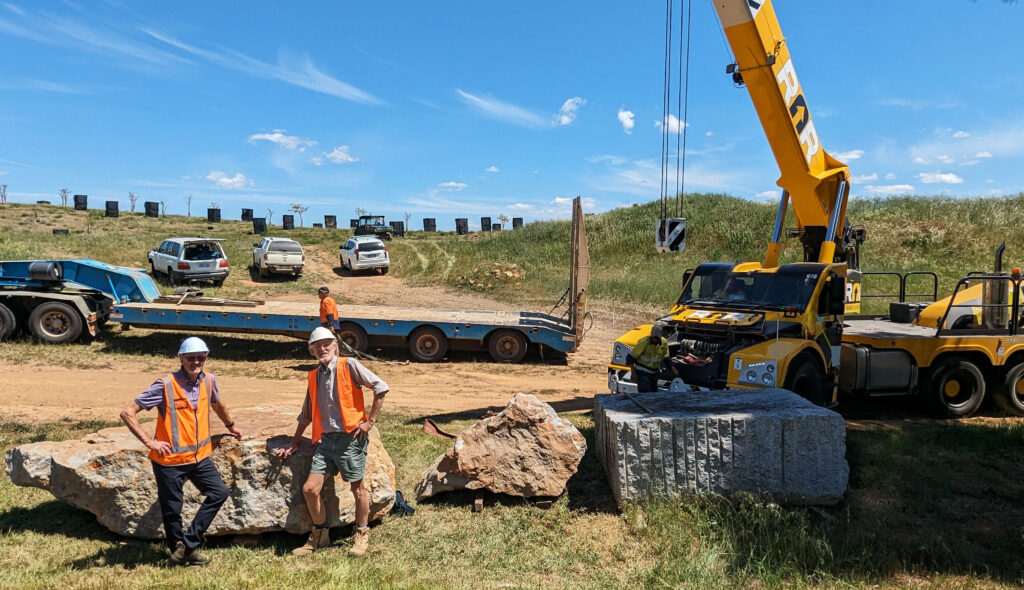
With help from your funding the NRG will be able to start work on moving these and other stored rocks to their display positions.


